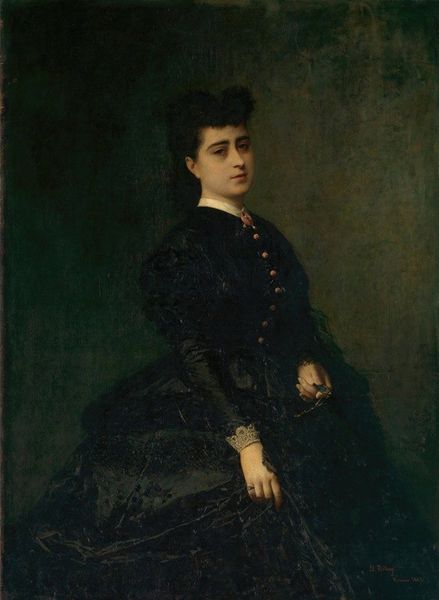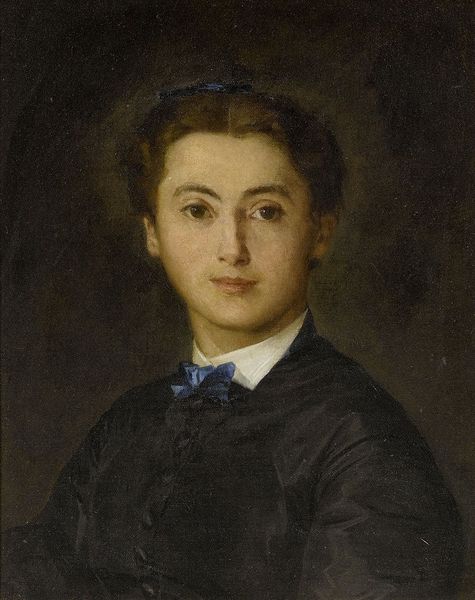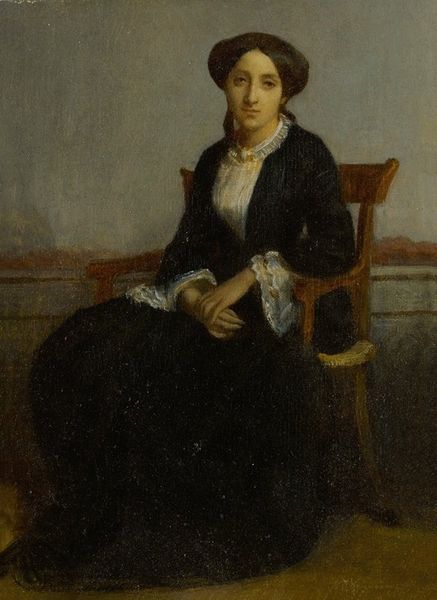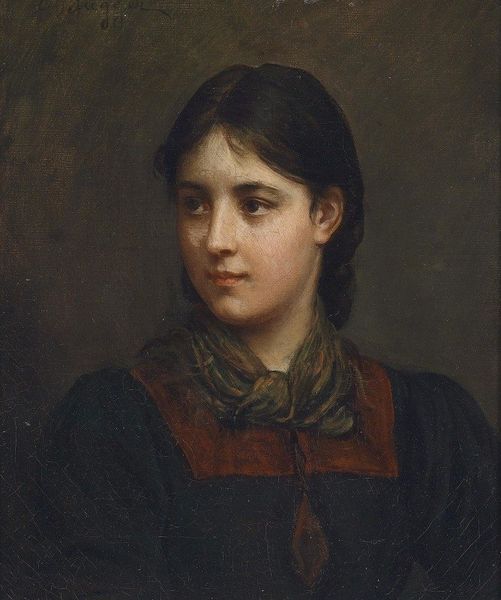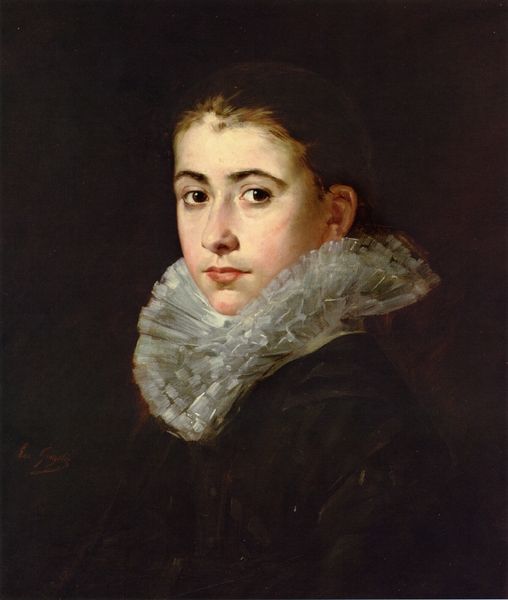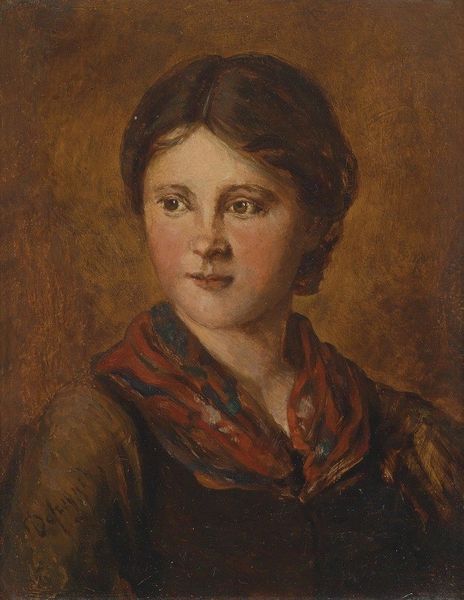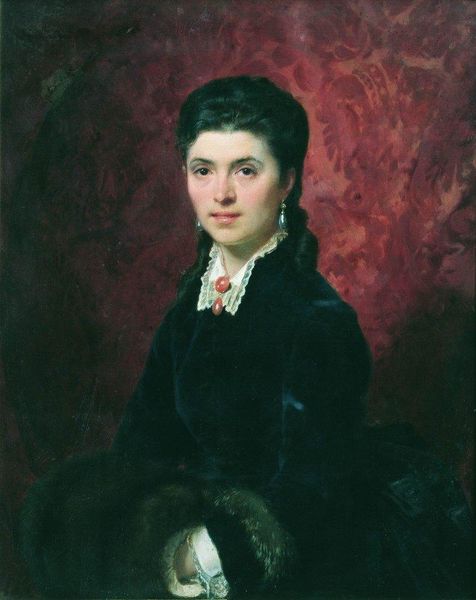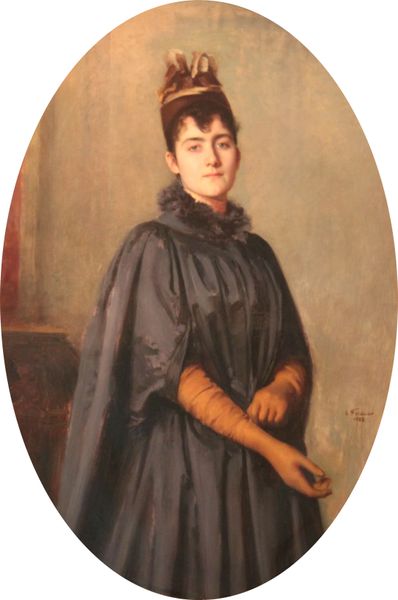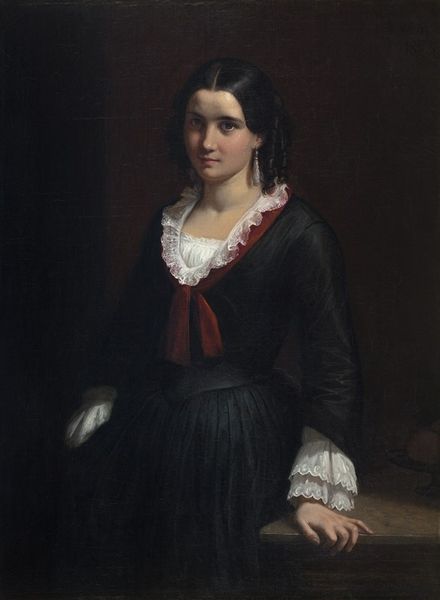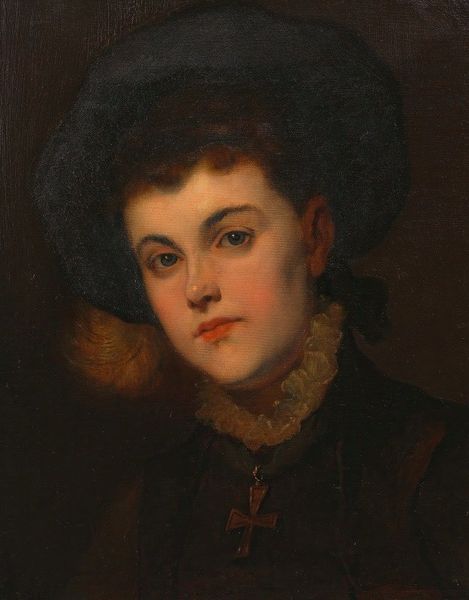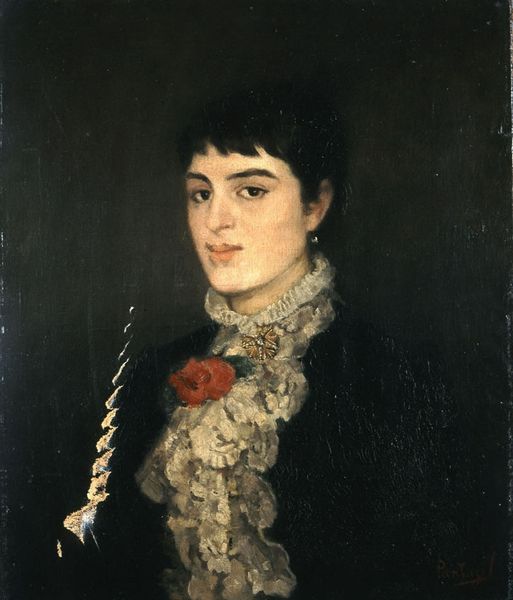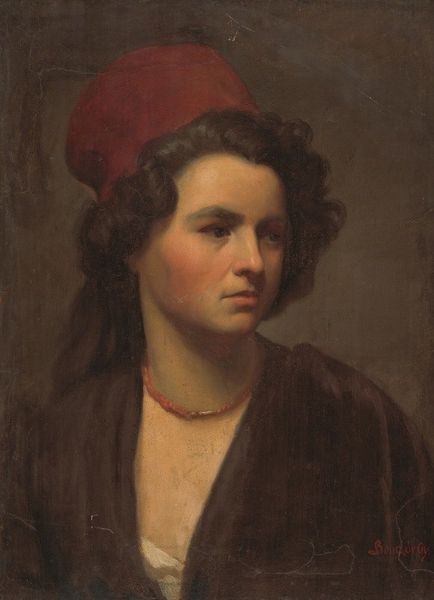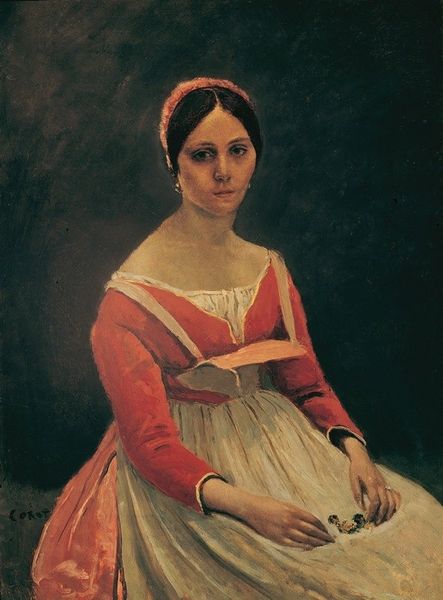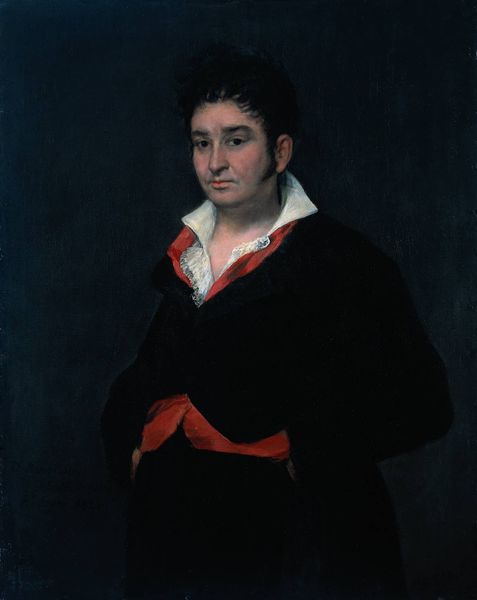
Copyright: Public Domain: Artvee
Gustave Courbet painted this “Portrait of a Woman, Juliette Courbet” with oil on canvas. While this is formally a portrait of his sister, Juliette, consider that Courbet came of age during a time of great social and political upheaval in France. The revolutions of 1830 and 1848 called into question inherited power structures and social hierarchies. In this context, Courbet’s commitment to Realism, the idea that art should depict the observable world, was considered radical. Here, Juliette is painted with a directness and lack of idealization that was new for its time. Her gaze is frank, and her posture informal; she holds a walking stick, suggesting a life of movement and independence. The subdued palette and simple composition reflect Courbet's broader project to represent the dignity of everyday life, but the artist develops an alternative narrative by subtly challenging the traditional, passive representation of women in art. What do you think it meant for Courbet to represent his sister with such unadorned honesty?
Comments
No comments
Be the first to comment and join the conversation on the ultimate creative platform.
